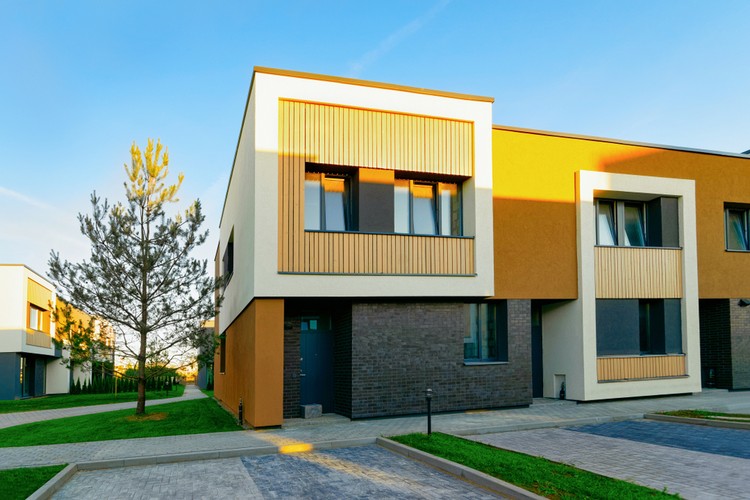The Rise of Mobile Homes: Affordable Living in a Changing World
In recent years, mobile homes have experienced a significant resurgence in popularity, offering an affordable housing solution for many Americans. As traditional home ownership becomes increasingly challenging for some, mobile homes present a viable alternative that combines affordability with flexibility. This article explores the growing appeal of mobile homes, their evolving design, and the considerations potential buyers should keep in mind.

What are mobile homes and how have they evolved?
Mobile homes, also known as manufactured homes, are prefabricated structures built in factories and transported to a designated site. Unlike their predecessors, modern mobile homes have come a long way in terms of design, quality, and amenities. Today’s manufactured homes often feature spacious floor plans, energy-efficient appliances, and stylish finishes that rival traditional site-built homes.
Why are mobile homes gaining popularity?
The growing appeal of mobile homes can be attributed to several factors. First and foremost is affordability. With the rising costs of traditional housing, mobile homes offer a more accessible path to homeownership for many Americans. Additionally, they provide flexibility in terms of location, allowing owners to potentially move their homes if needed. The ability to customize and the improved quality of construction have also contributed to their increasing popularity.
How do mobile homes compare to traditional housing in terms of cost?
Mobile homes typically cost significantly less than traditional site-built homes. On average, the price per square foot for a mobile home is considerably lower than that of a conventional house. This cost advantage extends beyond the initial purchase price to include lower property taxes and insurance costs in many cases.
However, it’s important to note that costs can vary widely depending on factors such as location, size, and customization options. Here’s a general comparison of costs:
| Housing Type | Average Cost Per Square Foot | Typical Size Range | Estimated Total Cost |
|---|---|---|---|
| Mobile Home | $50 - $100 | 600 - 2,000 sq ft | $30,000 - $200,000 |
| Traditional Home | $100 - $200+ | 1,000 - 2,500 sq ft | $100,000 - $500,000+ |
Prices, rates, or cost estimates mentioned in this article are based on the latest available information but may change over time. Independent research is advised before making financial decisions.
What design options and customizations are available for mobile homes?
The design evolution and customization options for mobile homes have expanded significantly. Today’s manufactured homes come in various styles, from single-wide units to spacious double-wide configurations. Buyers can choose from a range of floor plans and customize interiors with features like open concept layouts, gourmet kitchens, and luxurious bathrooms. Exterior options have also improved, with choices in siding materials, roof styles, and even porches or decks that can be added to enhance outdoor living space.
What are the challenges and considerations of mobile home ownership?
While mobile homes offer many benefits, there are also challenges and considerations to keep in mind. One primary concern is land ownership. Many mobile home owners rent space in mobile home parks, which can lead to uncertainties regarding lot rent increases or park closures. Additionally, financing for mobile homes can be more challenging than for traditional homes, often requiring specialized loans with higher interest rates.
Another consideration is the potential for depreciation. Unlike traditional homes, which typically appreciate over time, mobile homes may depreciate, especially if not properly maintained or if located in less desirable areas. However, with proper care and strategic placement, some mobile homes can maintain or even increase in value.
How do zoning laws and regulations affect mobile home living?
Zoning laws and regulations play a crucial role in mobile home living. Many municipalities have specific zoning requirements for manufactured homes, which can limit where they can be placed. Some areas may restrict mobile homes to designated parks, while others allow them on private land with certain conditions.
It’s essential for potential buyers to research local zoning laws and understand any restrictions or requirements before purchasing a mobile home. This includes checking for minimum size requirements, foundation specifications, and any aesthetic guidelines that may be in place.
In conclusion, mobile homes represent an increasingly attractive option for affordable living in today’s changing world. With improved designs, customization options, and significant cost savings compared to traditional housing, they offer a viable path to homeownership for many Americans. However, potential buyers should carefully consider the challenges, including land ownership issues, financing complexities, and zoning regulations. As the housing market continues to evolve, mobile homes are likely to play an important role in addressing affordability concerns and providing flexible living solutions for diverse populations.




